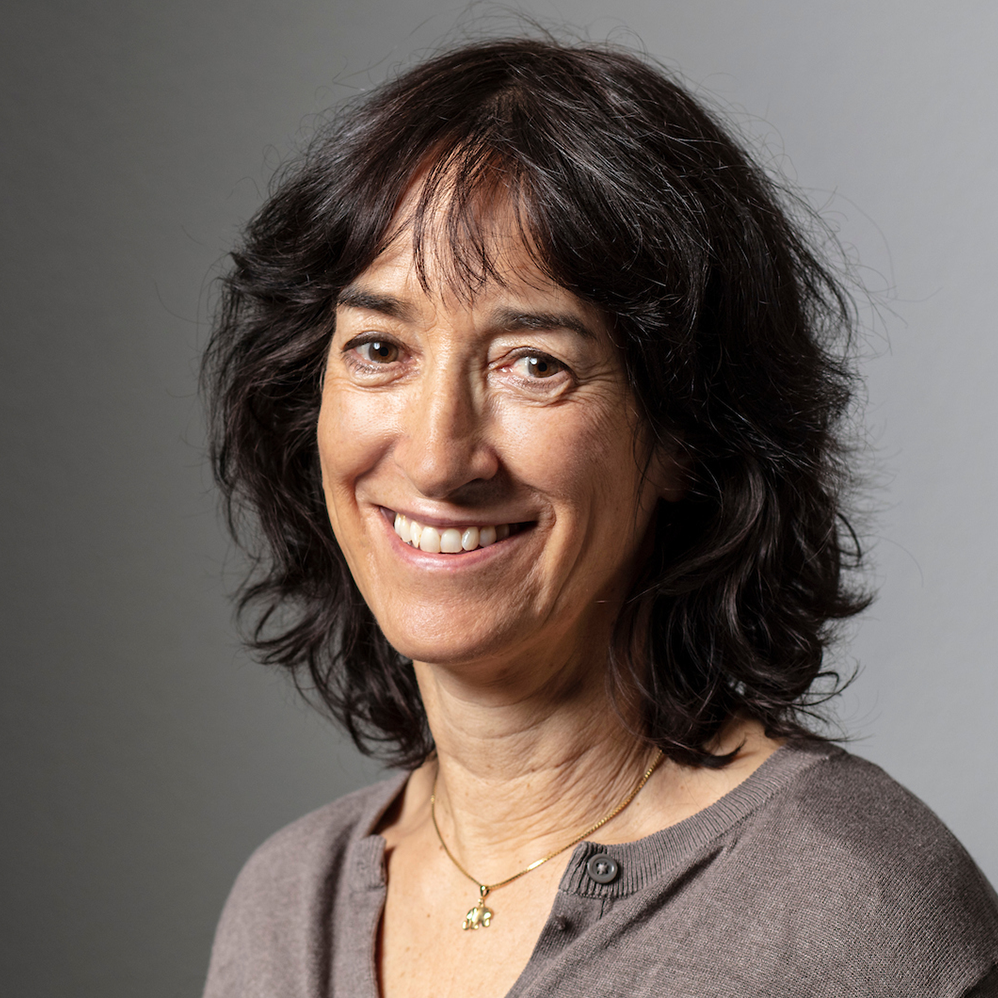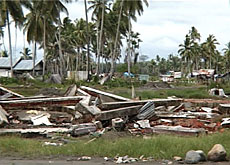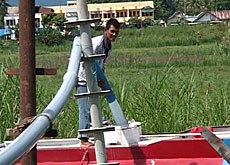Swiss help Sumatra’s widows

In remote Calang, in the north of the Indonesian island of Sumatra, a Swiss charity is helping women widowed by the 2004 tsunami to make a new start.
The giant waves unleashed by the seaquake destroyed everything in their path. The houses and infrastructure in the Calang sub-district of Aceh province were completely obliterated.
Before last December’s tsunami, you could drive from the provincial capital, Banda Aceh, to Calang in three to four hours. Now it takes at least 12 hours, as the roads are in such poor condition and many bridges have been swept away.
Due to the inaccessibility of the area, it took a week before the first emergency aid was flown in for survivors, who had taken refuge in the mountains.
As far as the Indonesian government was concerned, delivering aid to a former stronghold of the Free Aceh separatist movement was not a priority.
Poor access, lack of infrastructure and basic water and sanitation facilities make it a daunting place for non-governmental organisations to work.
Protestant charity Swiss Interchurch Aid got involved here precisely because there were so few organisations helping the survivors.
The NGO’s communications officer, Seta Thakur, told swissinfo: “Our Indonesian partner, Teplok, found out that widows were particularly hard hit by the disaster and had no social support structure, as they are held in low esteem in Aceh. So we decided to help them.”
Economic independence
The charity is concentrating on eight villages, in which more than 2,000 people died. The heads of about half of the 908 families now living in the district are widows, with no source of income.
“The plan is to work with 300 women divided into 30 groups. They will receive loans to enable them to start small businesses, which will make them economically independent,” Thakur explained.
Per group of ten women, Interchurch Aid will provide 10 million Indonesian Rupias (about $1,000) to the common fund.
Each participant must contribute 200,000 Rupias to be used as start-up capital. The repayment period is up to 18 months, with nine per cent interest.
Thakur is confident that the loans will be repaid, despite the difficult economic climate.
“In countries where we have implemented this micro-credit system, repayment rates exceed 90 per cent.”
Working closely with Teplok, the groups will decide whether proposed projects are sustainable.
The businesses could involve anything from setting up small market stalls, raising chickens, growing chillies, making cakes, weaving cloth or running restaurants.
The groups will not only help to generate income, but also to provide a support structure for people who have lost so many loved ones.
The meetings were supposed to be monthly, but the Calang widows enjoy getting together so much that they now meet every week to discuss their plans and problems.
Rita’s story
Rita is among the widows hoping to benefit from the scheme. She lost her husband in the tsunami.
Days after escaping from the giant waves, she gave birth to her daughter Irayana in a forest, in monsoon weather.
“I was at home cooking when I heard three big explosions like bombs,” Rita told swissinfo. “I didn’t react because I thought it was fighting, and we were used to that. But then someone started yelling that the seawater had disappeared and it was time to run to the hills. The whole village fled.
“When we reached higher ground, we saw hundreds of people being swept away. Later that day, we managed to persuade a boat owner to take us to another mountain, where we thought we would be safer.”
“We grabbed some plastic sheeting along the way, to build a shelter, and lived off some rice and sugar we salvaged. Luckily, the village midwife was there to help me deliver my baby. But it was seven days before any emergency aid arrived.”
Three months after the catastrophe, Rita and her family returned to the land where their house used to stand. They now live in a temporary shelter.
Realising that she now had to become the main breadwinner, Rita started a small café in August. With the credit she hopes to receive through Interchurch Aid, Rita plans to enlarge her business.
“It took me two to three months to accept that I would never see my husband again. I can cope with my grief because many people I know suffered greater losses.”
“As for being a widow, there are people who look down on me. But if I lead my life the way Allah wants me to, I believe most people will accept me.”
swissinfo, Julie Hunt in Calang, Aceh, Indonesia
The Calang project will run for two years.
Its cost is estimated at SFr450,000 ($350,000), with 80% of funding coming from Swiss Solidarity and 20% from Swiss Interchurch Aid.
5,000 members of widows’ families will benefit from the micro-credit system.
Indonesia was the hardest hit in terms of human loss and damage by the December 26, 2004 earthquake and tsunami.
In Aceh, 130,000 people died and 1,000km of the coastline was affected.

In compliance with the JTI standards
More: SWI swissinfo.ch certified by the Journalism Trust Initiative



You can find an overview of ongoing debates with our journalists here. Please join us!
If you want to start a conversation about a topic raised in this article or want to report factual errors, email us at english@swissinfo.ch.